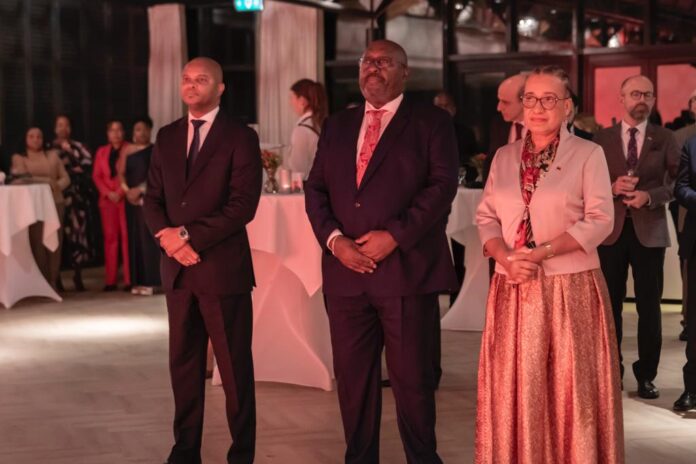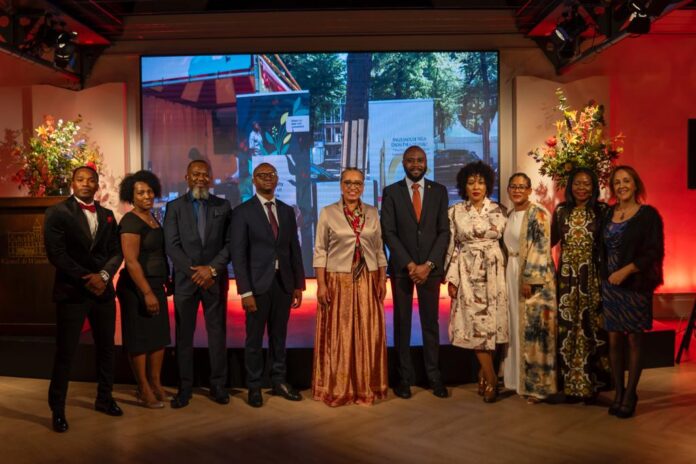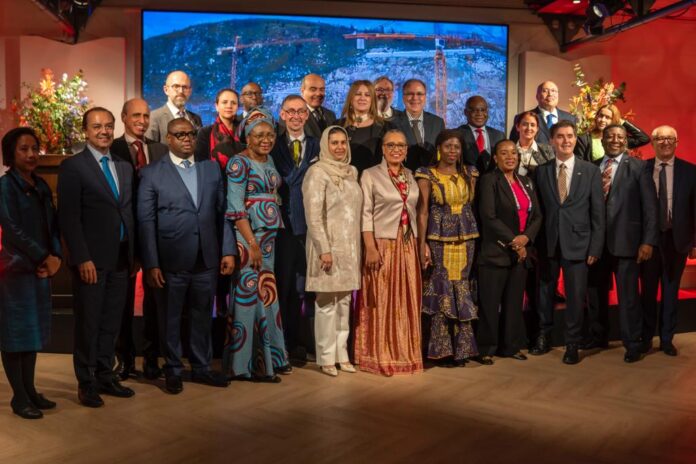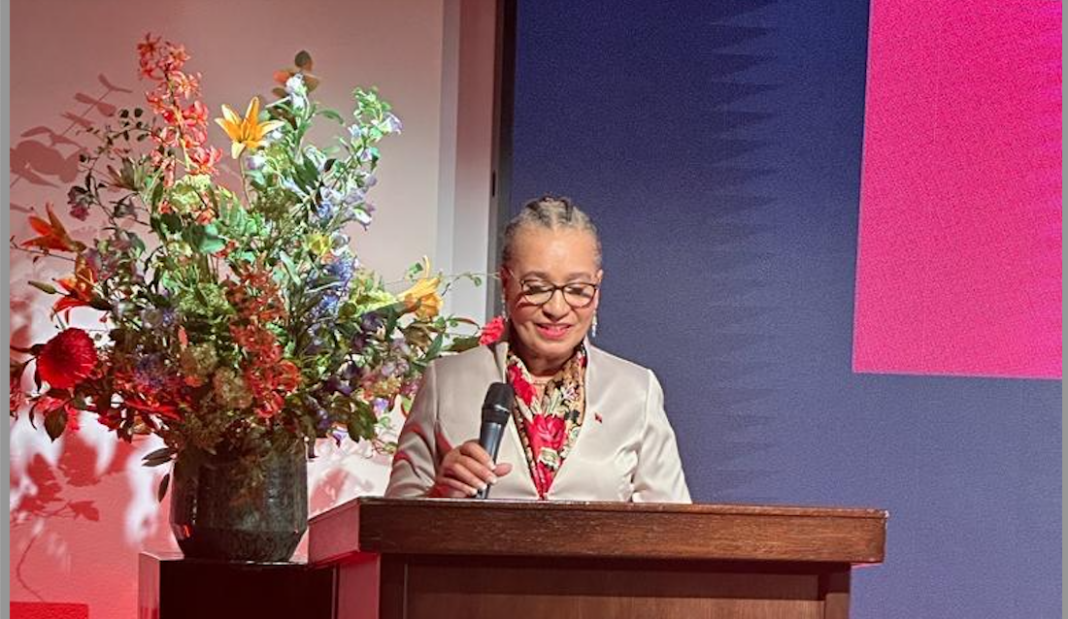On the occasion of the 48th Anniversary of the Independence of the Republic of Angola, the Ambassador of the Republic of Angola to the Kingdom of the Netherlands, H.E. Mrs. Maria Isabel Encoge, hosted a grand Independence Day Reception. Diplomats, Dutch civil servants, friends of Angola, and Angolans gathered at the event, which was both solemn and colorful. Ambassador Encoge, who holds the distinguished position of Dean of the African diplomatic corps, delivered an insightful speech that reflected on Angola’s journey since proclaiming its independence on November 11, 1975.

Ambassador Encoge began her speech by expressing her satisfaction and privilege in addressing the audience on this joyous occasion. She commemorated the forty-eighth anniversary of Angola’s independence, a significant milestone achieved under the leadership of Dr. António Agostinho Neto, the First President and Founder of the Nation.

Reflecting on Angola’s history, Ambassador Encoge highlighted the country’s transition from years of conflict to a new era marked by peace, achieved on April 4, 2002. This crucial period of National Reconciliation among Angolans laid the foundations for reconstruction and the realization of rights outlined in the Constitution of the Republic.
Under the leadership of H.E. President João Gonçalves Lourenço, Angola has committed to consolidating the Democratic State and the Rule of Law. Ambassador Encoge emphasized the dedication to establishing the foundations of a dynamic, efficient, and inclusive market economy. Several political, economic, and social reforms have been implemented, including the reformulation of private investment laws, which increased tax incentives for national and foreign investors and improved the overall business environment. “This reform included exemption from tourist visas for a period of up to 30 days for citizens of 98 countries, including Europe, the Caribbean and Pacific, America, Africa, Oceania and Asia”.

Ambassador Encoge underscored Angola’s efforts towards economic diversification, with programs such as Propriv and Prodesi, as well as the integrated intervention plan in municipalities (PIIM). These initiatives have played a pivotal role in enhancing the institutional, technical, and human capacity of public and private bodies.
“On the other hand,” ambassador said “in order to face the difficulties that the world is facing with wars and the food crisis, the informal economy reconversion program (PREI), the integrated program for local development and combating poverty, of panagrão, was implemented.” These initiatives aim to contribute to achieving food self-sufficiency, developing agriculture, and creating jobs for the economic and social development of Angola.
Addressing climate change concerns, Ambassador Encoge detailed Angola’s initiative to mitigate the effects of drought by constructing the CAFU canal. This water transfer system, spanning approximately 160 thousand kilometers, reduces transhumance caused by water scarcity and benefits around 235 thousand people, 250 thousand head of cattle, irrigates about 15 thousand hectares of land, and guarantees 3,275 thousand jobs.
Highlighting cooperation relations, Ambassador Encoge expressed Angola’s openness to establishing new partnerships and deepening bilateral relations with the Netherlands. She noted the historical ties between the two countries, dating back to February 1976, and emphasized the positive outcomes of an Angolan Business Mission visiting the Netherlands in September.
Ambassador Encoge stressed the importance of gender perspective in peace processes, emphasizing the crucial role of women in negotiations, construction, and peace operations. Angola actively contributes to international peace and security, with President João Manuel Gonçalves Lourenço championing peace and reconciliation in Africa.

In closing, Ambassador Encoge reiterated Angola’s commitment to cordial diplomatic relations, defending principles of international law, and advocating for a world of peace, mutually advantageous relations between states, and a more balanced world order. As Angola celebrates its 48th year of independence, the nation looks toward a future marked by continued progress, cooperation, and global harmony.




